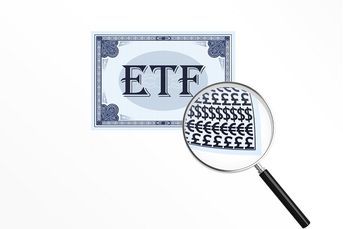China equity exposure, already big in some funds, expected to increase in 2016
MSCI plans to add nearly two-dozen foreign-listed companies, including two of China's biggest, to its global indexes.
Shareholders of large emerging-markets exchange-traded funds and mutual funds already have significant exposure to China, but the weightings will likely rise in 2016.
MSCI announced last week that it would include nearly two-dozen foreign listed securities to its global indexes. In particular, China’s Alibaba Group (BABA) and Baidu (BIDU), which trade in the U.S. only as American depositary receipts and are among the largest companies in the world, would be added to the MSCI emerging markers indexes in two stages; the first round of investment will take place at the end of this month and the second stage would be in May 2016.
Both iShares Core MSCI Emerging Markets (IEMG) and iShares MSCI Emerging Markets (EEM) would be directly affected, and we think a variety of active mutual funds that use an MSCI index as a benchmark would be indirectly affected. (More: Yellen, yuan and yields: Global economies are more closely linked than ever)
Meanwhile at the beginning of November, The Vanguard Group announced that it began transitioning to a new FTSE index it uses to track for Vanguard Emerging Markets that will ultimately scale up to a 5.6% weighing in China A-shares.
IMPORTANCE OF CHINA
Why is additional exposure to China important? China accounts for 20% of global trade, is the world’s largest manufacturer and has more than 2,000 companies listed on exchanges. In October, the International Monetary Fund forecast 6.3% in real gross domestic product growth for China, for 2016 and 2020, stronger than most emerging markets.
China A-shares are equity shares in mainland China companies that are traded on the Shanghai and Shenzhen stock exchanges and are available only to qualified foreign investors through regulated systems. In late 2014, China began providing additional yet limited access to this market, though there are required quotas and regulatory approval for asset managers. Vanguard and BlackRock’s iShares have long accessed China through H-shares of Chinese companies, such as China Mobile and Tencent Holdings, that trade in Hong Kong.
As we wrote in June when Vanguard first announced plans to include A-shares, the company said that it recently received a $1.6 billion initial quota for use in its funds that Vanguard believes will provide exposure to China’s largest issuers and a level of diversification that isn’t otherwise available in the market. Vanguard planned to apply on a quarterly basis for additional quotas and increase its exposure to China A-shares over the next 12 months.
In June, MSCI announced it was continuing to review the A-shares market. At that time, global investors told MSCI that having reliable access to quotas is a critical requirement. MSCI believes that large investors should be given access to quotas commensurate with the size of their assets under management. According to MSCI, all investors said that they need sufficient flexibility and assurance to secure additional quotas should the need arise.
As of the end of September 2015, Vanguard Emerging Markets’ largest country exposure was in China with 27% weighting (including Hong Kong based companies), with Taiwan (14%) and India (13%) providing some diversification. According to Vanguard, the exposure to industrial companies is higher, while telecom services is lower in the new FTSE/Russell index.
REVIEW PORTFOLIO HOLDINGS
In ranking equity mutual funds and ETFs, S&P Capital IQ looks beyond past performance metrics and reviews the portfolio’s holdings from a valuation and risk perspective. As such, what’s inside the fund is particularly important.
Focusing on the ETFs, Vanguard FTSE Emerging Markets (VWO) had declined 12.5% year-to-date through Nov. 12, while IEMG fell 11.3%. The different country exposure the products provide has contributed to the performance differences.
For the past year, the biggest difference between the Vanguard and iShares emerging-markets ETFs was the exclusion of South Korea in the Vanguard products. While IEMG’s largest country exposure was recently to China (23% of assets), South Korea (16%) was the second-largest. Now, with the different approaches to other Chinese companies, the gap is likely to widen.
BIDU is the leading provider of Chinese-language online search services and will likely experience 21% compounded annualized growth over the next three years, according to S&P Capital IQ estimates. BIDU has a $540 billion market cap. Meanwhile, with a $195 billion market cap, BABA is the clear leader in e-commerce/mobile commerce in China, we think. We project 24% compounded annualized growth rate on a three-year basis. A third foreign- listed security being added to the MSCI emerging markets index operates in the United Arab Emirates.
We think the MSCI decision extends even further than the ETF marketplace, as its emerging- markets index is widely used as a benchmark for active mutual funds. Oppenheimer Developing Markets (ODVYX) and T. Rowe Price Emerging Markets Stock (PRMSX), are two such large examples. ODVYX and PRMSX recently had 22% and 21% stakes in China, respectively, and both had a top-10 holding in BIDU. With MSCI adding foreign listed securities, other active funds are likely to need to consider whether to follow suit or risk being significantly underweighted China relative to its benchmark.
Todd Rosenbluth is director of mutual fund and ETF research at S&P Capital IQ.
Learn more about reprints and licensing for this article.






